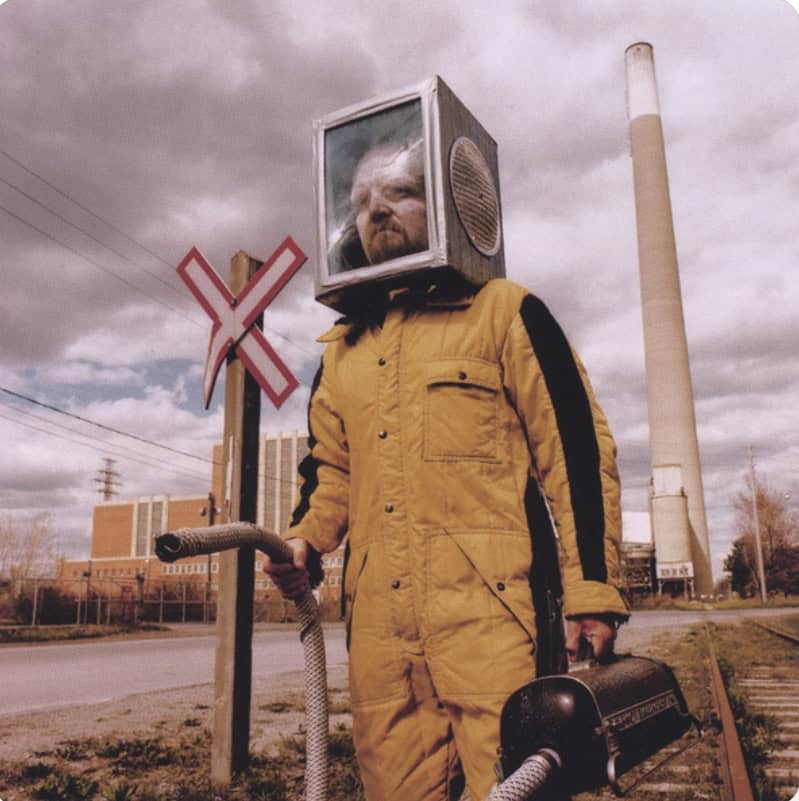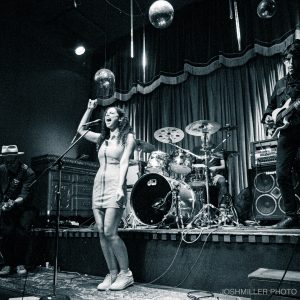There’s something sacred in the wreckage of rock ‘n’ roll. Some pulse that still beats under the surface noise of industry polish and chart-chasing conformity. Ed Roman, the cosmic journeyman of Canadian indie, reaches right into that static and pulls out “Pawnshop Ghettoblaster,” a track so gloriously raw, so unfiltered in its funk-laced confessional chaos, that it practically hums with life between every bar.
Roman isn’t just a songwriter. He’s a storyteller, a soul cartographer. His new song isn’t crafted for playlists or TikTok reels—it’s birthed from basement jam sessions, barn-studio camaraderie, and the kind of lived experience that doesn’t care what decade it is. The song is a time capsule and a calling card, a message scrawled in Sharpie on the walls of the music industry’s breakroom: Art still matters. Truth still swings. And the funk is still alive.
“Pawnshop Ghettoblaster is gonna trade my soul for four string master.”
From that opening line, Ed isn’t playing coy. He’s testifying. The pawnshop is metaphor, memory, and metaphor again—a stand-in for every moment an artist questions whether selling their song also means selling their soul. He’s done the sessions, played the side gigs, backed the dreams of others. But this? This is Ed taking his own story back.
And the rhythm—my God, the rhythm. In a world addicted to 4/4 and digital quantization, Roman rolls in with a 5/4 time signature, like a reminder from the musical cosmos that not everything has to be easy to feel right. The groove stumbles beautifully, like a drunken prophet dancing his way through the noise. It’s unsettling at first, and then it owns you. The beat becomes a mantra. The off-kilter becomes the anchor.
The chorus crashes in like a sidewalk preacher’s chant:
“Now, now, now now now now / Dig my shoeshine mama say Yeah Yeah Yeah.”
It’s absurd and sublime, a groove gospel laced with humor and defiance. That’s Ed Roman’s magic trick—he lets the ridiculous carry the real. He lets the beat do the heavy lifting, and it moves with the weight of wisdom earned, not borrowed.
There’s mythology baked into this track. The early sessions at Sweetwater Farm weren’t just recording days—they were ritual. Roman, Tobias Tinker, Chris Roberts, and the late Bain Arnold forged this song like blacksmiths of the groove. No formula. No polish. Just trust, tape, and the kind of musical synergy that doesn’t happen twice. Roman tells it like a legend, and you can hear it in the bones of the song.
And then came the reimagining—Area 51, Markham, Ontario, a new lineup: Mike Freedman, Dave Patel, Rich Pell. The groove stayed, but the colors deepened. It’s still funky, still odd, but sharper, tighter, hungrier. With Michael Jack on the mix and Marc Crabtree’s lens framing the visuals, this version of “Pawnshop Ghettoblaster” isn’t just a song. It’s a statement.
Now bring in Paul Ribera, the alchemist of animation, the mind behind Raincloud Stories. What he does visually with this piece isn’t illustration—it’s interpretation. Roman says Ribera’s work resonates like fractals, and that’s dead on. His animation doesn’t explain the song—it expands it. It brings you into the hallucination, lets you live in the dream logic of Roman’s lyricism. Together, they make a kind of multimedia psalm for the spiritually exhausted.
Because here’s the truth buried inside all this swagger and funk: “Pawnshop Ghettoblaster” is about finding your voice when the world keeps trying to sell it back to you. It’s about the cost of creation, the price of truth, and the joy of refusing to let either kill your spirit.
Ed Roman didn’t write this song to please the algorithms. He wrote it to survive them. And in doing so, he reminds us why music matters. Not because it’s perfect, but because it’s real.
So turn it up. Let it knock the dust off your soul. Let the beat stumble and fall and rise again. Dig your shoeshine, mama. Say yeah, yeah, yeah.







